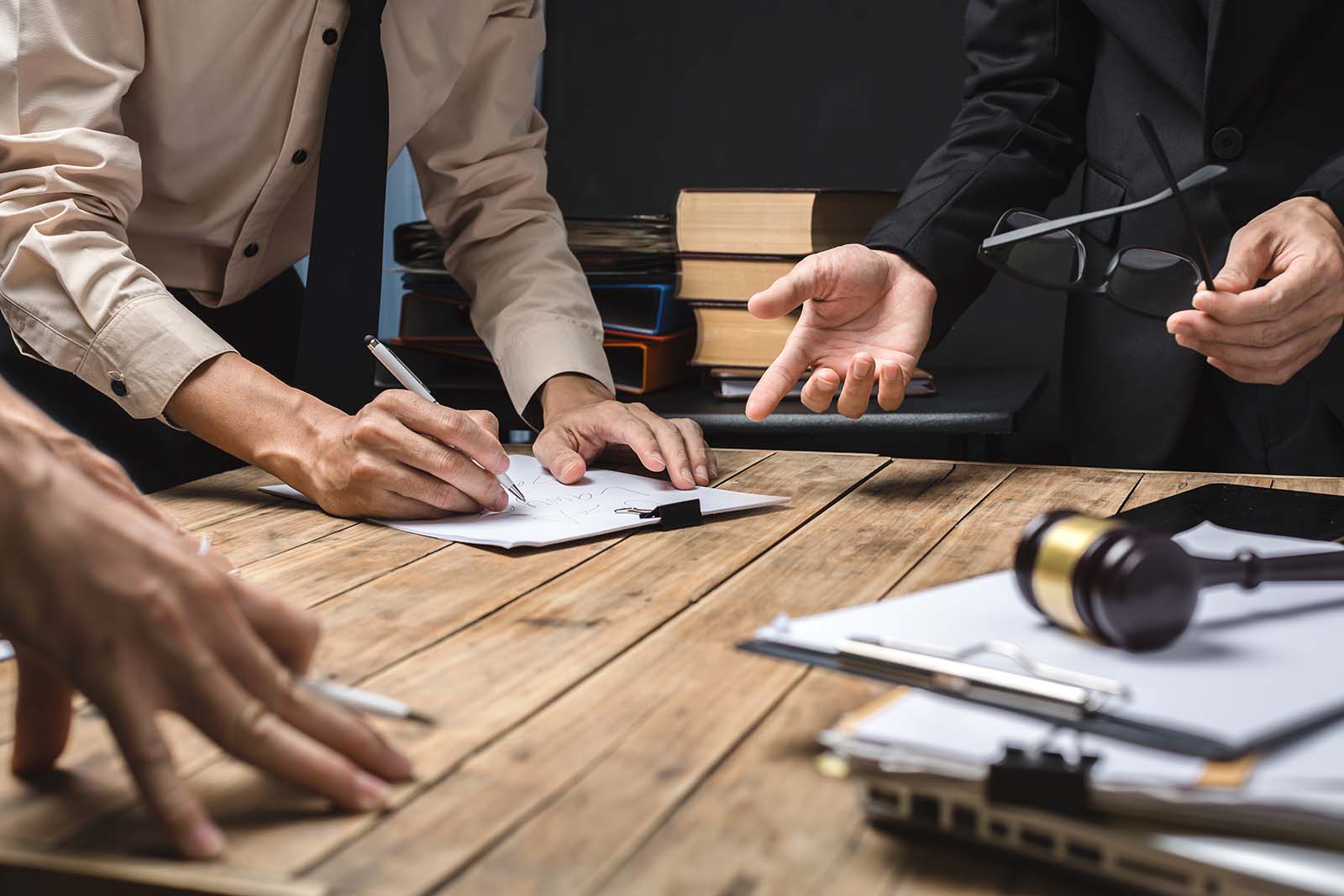The bankruptcy process is complex and highly individual to the person involved. The steps that are taken to raise money for creditors will depend on the financial position of the debtor and so there is a lot of room for variation, but one constant feature of bankruptcy is the involvement of an appointed person from the government’s Insolvency Service – known as the ‘Official Receiver’. It is their job to take control of your assets and finances (known as your ‘bankruptcy estate’) and to try to generate money with which to repay your debts.
Any debtor declared bankrupt in England, Wales or Northern Ireland must engage with the official receiver that is appointed to manage their case. By providing information about financial matters and co-operating with them, debtors can contribute towards the smooth progress of their bankruptcy and can begin to take control of their future. In contrast, failure to do so can result in severe consequences which could last for many years to come.
In this article, we examine the role of the official receiver and look at some of the common questions that debtors have about this key bankruptcy official.
What is the role of the official receiver in bankruptcy?
The official receiver is a person appointed by the government’s Insolvency Service to manage your bankruptcy estate and deal with the administration of your insolvency. A major part of their role involves taking control of some of your property (for example, assets such as a house or money in savings accounts) and assessing whether you are in a position to contribute towards your debts.
There’s no question that debtors who are made bankrupt will not be able to settle their debts in full, as this is one of the criteria for making a bankruptcy order. Despite this, it is still the aim of the official receiver to try to generate as much money as possible for the creditors involved. They will investigate your conduct and financial status both before and during your bankruptcy to ensure that everything is in order and that all of the relevant assets and other matters have been disclosed. This process will generally involve asking the debtor to complete a questionnaire, attend an interview, and in some cases even a public examination.
If any funds can be found within your bankruptcy estate, the official receiver may also act as a trustee, distributing your property and money between the relevant creditors.
How is the official receiver appointed?
The official receiver is a civil servant, working for the government’s Insolvency Service. They typically act in cases of personal bankruptcy, along with the winding up and liquidation of companies. The official receiver is an officer of the court, and this means that they must report their findings throughout the bankruptcy process whilst acting in a transparent and lawful manner.
How do you have to co-operate with the official receiver?

The involvement of the official receiver will usually begin within a few days of a bankruptcy order being made. At this point, you will officially be bankrupt and your case will have undergone a review process by both an adjudicator from the Insolvency Service and by the court. From this point onwards, the administration of your bankruptcy will be managed by the official receiver and it is crucial that you co-operate with them. The level of contact with the official receiver, and what is required of a debtor, will vary from case to case but the following steps are fairly typical:
Questionnaire
One of the first steps that the official receiver may take might be to send you a questionnaire requesting details of your financial situation and details of your assets. This will set out the assets that form your bankruptcy estate and you will be expected to fill it out as fully and completely as possible. In many cases, this exercise will also involve gathering together your financial records – which will enable the official receiver to begin administering your bankruptcy.
When the official receiver communicates information about the questionnaire, they will usually provide a timescale within which it must be completed and returned – and so bankrupt debtors can expect a relatively clear timeline from the outset.
Interview
The official receiver will also take the opportunity to gather further information about your circumstances by holding an interview – usually via telephone. This interview must take place within ten working days of the court making your bankruptcy order and could last from between half an hour to several hours dependent on how complex your case is.
During the interview, the official receiver will typically check that any information you have provided in your questionnaire is correct, ask for additional information about assets and debts, and will ask for your account of the circumstances that led to your bankruptcy.
An interview with the official receiver is also your opportunity to ask any questions about how the bankruptcy process will work and to discuss any concerns you may have about your case. The official receiver will be an experienced professional with a comprehensive knowledge of bankruptcy, and so they will be well placed to address your worries and explain the finer details of the process.
Public Examination
Bankruptcy is as much about creditors as it is about a debtor – after all, they are the ones who in most cases will not be repaid in full, if at all. It follows that in some cases, creditors may wish to take a more hands on approach to bankruptcy and request further investigation of a debtor’s situation. If half of your creditors request a public examination, the official receiver can require you to appear at such a meeting during which the details of your financial situation could be set out in open court.
Debtors should be aware that a public examination is a formal court process and co-operation is mandatory. The official receiver will set out in clear terms what is required of you, but failure to attend could result in severe consequences including arrest, a fine or even imprisonment in some extreme cases.
Meeting of your creditors
In some cases, the official receiver may also see fit to arrange a meeting of all of your creditors. At the meeting, your financial situation will be discussed, and your creditors may appoint an insolvency practitioner to act as the trustee of your bankruptcy estate. A trustee would then take responsibility for raising money from your assets (including both properties and belongings) to pay towards your debts. The format of any meeting will depend on the debtor’s financial circumstances and will vary on a case by case basis, but the official receiver may require you to attend.
Do you have to tell the official receiver about changes to your circumstances?

During bankruptcy, debtors are expected to inform the official receiver of any changes to their circumstances as and when they arise. Your obligation to keep the official receiver updated includes in particular any property or income that you obtain whilst bankrupt. This might include a windfall from an inheritance, a personal injury or PPI claim award or even a lottery win.
Once notified, the official receiver or a trustee of the bankruptcy estate may take some or all of any new assets to put towards your debts, and whilst this may discourage debtors from keeping the official receiver informed, failing to do so can have serious repercussions.
What happens if you don’t co-operate with the official receiver?
Failing to fully co-operate with the official receiver, or any appointed bankruptcy trustee, can have major consequences that extend beyond the bankruptcy process itself. If it is found that you have not made a full and transparent disclosure of your financial position, or if you do not co-operate with what is asked of you by the official receiver, they can request that the court imposes any of the following penalties:
- an order for you to attend a public examination, where your financial status will be set out in open court;
- a warrant for your arrest if you have failed to attend a public examination;
- an order for your mail to be redirected to the trustee to ensure that all communications are known and taken into account during your bankruptcy;
- a bankruptcy restrictions order made against you; or
- an order to suspend your discharge from bankruptcy.
In extreme cases, debtors could be prosecuted for failing to co-operate with the official receiver, and any offences that were committed before the bankruptcy could also be put before the court.
Will the official receiver tell anyone about my bankruptcy?
It’s important to remember that bankruptcy is a public process, with a register of those who have been made insolvent freely available online. The official receiver will take charge of ensuring that your name is added to the Insolvency Register once a bankruptcy order has been made, and after this point your name and details will be searchable – usually up until three months after your bankruptcy has been discharged.
The official receiver will also take responsibility for informing your creditors that you have been made bankrupt. They will act as a medium for communications between a debtor and their creditors, and may organise a meeting of all the creditors involved.
There are a number of other interested parties that the official receiver may contact regarding your bankruptcy, and whilst this will depend on the specific circumstances of each case, typical examples include:
- your bank or building society;
- your landlord (in cases where you are behind on rent leaving you in arrears);
- any energy, water, telephone or other utility suppliers for which you are the account holder;
- your local authority; and
- any professional bodies that you are a member of, where bankruptcy could influence your status (for instance, if you are a member of the Institute of Chartered Accountants in England and Wales (ICAEW)).
Finally, details of your bankruptcy will be published in the London Gazette – a public record which announces all personal and business insolvencies amongst other official matters.
What can the official receiver take?
Although the official receiver manages and deals with the administration of your bankruptcy, they do not ‘take’ anything from a bankrupt debtor. As the manager of a person’s bankruptcy estate, the official receiver will instead attempt to gain an understanding of the financial situation that has led to bankruptcy before planning how best to raise money from the bankruptcy estate to put towards the relevant debts.
In this sense, the official receiver has the right to take control of all property (both buildings, land and belongings) as well as any money or investments held by the bankrupt debtor. These can be put towards the debts and could be distributed out to creditors either by the official receiver or another trustee appointed with the agreement of those that are owed money.
Can the official receiver take money after my bankruptcy has been discharged?

In most cases, any assets that you obtain after your bankruptcy has been discharged are yours to keep. You will no longer have to tell the official receiver if you have come into money from a claim award, inheritance, or other windfall payment.
There are, however, a few exceptions to this rule. Firstly, any assets that were seized under your bankruptcy and made up part of your bankruptcy estate will remain under the control of the official receiver or trustee. You will not be entitled to take these back and they may be sold and put towards paying your debts.
Similarly, if you were made subject to an Income Payments Agreement (IPA) or Income Payments Order (IPO) before your bankruptcy was discharged, you will need to continue paying towards your debts from your regular income for a period which usually runs for three years.
Conclusion
The role of the official receiver is an integral part of the bankruptcy procedure, and whilst at times debtors may find it difficult to do all that is asked of them, co-operation with this Insolvency Service official is essential. There is no doubt that much of your involvement with the official receiver will relate to providing information about your finances and debts, but it should not be forgotten that the official receiver can also provide debtors with a valuable source of knowledge about the bankruptcy process.
Failing to do as they could lead to any number of serious consequences coming into effect, but by doing your best to help them in their administration of your bankruptcy you can start to take control of your own financial future and may enjoy a ‘smoother’ bankruptcy process as a result.

